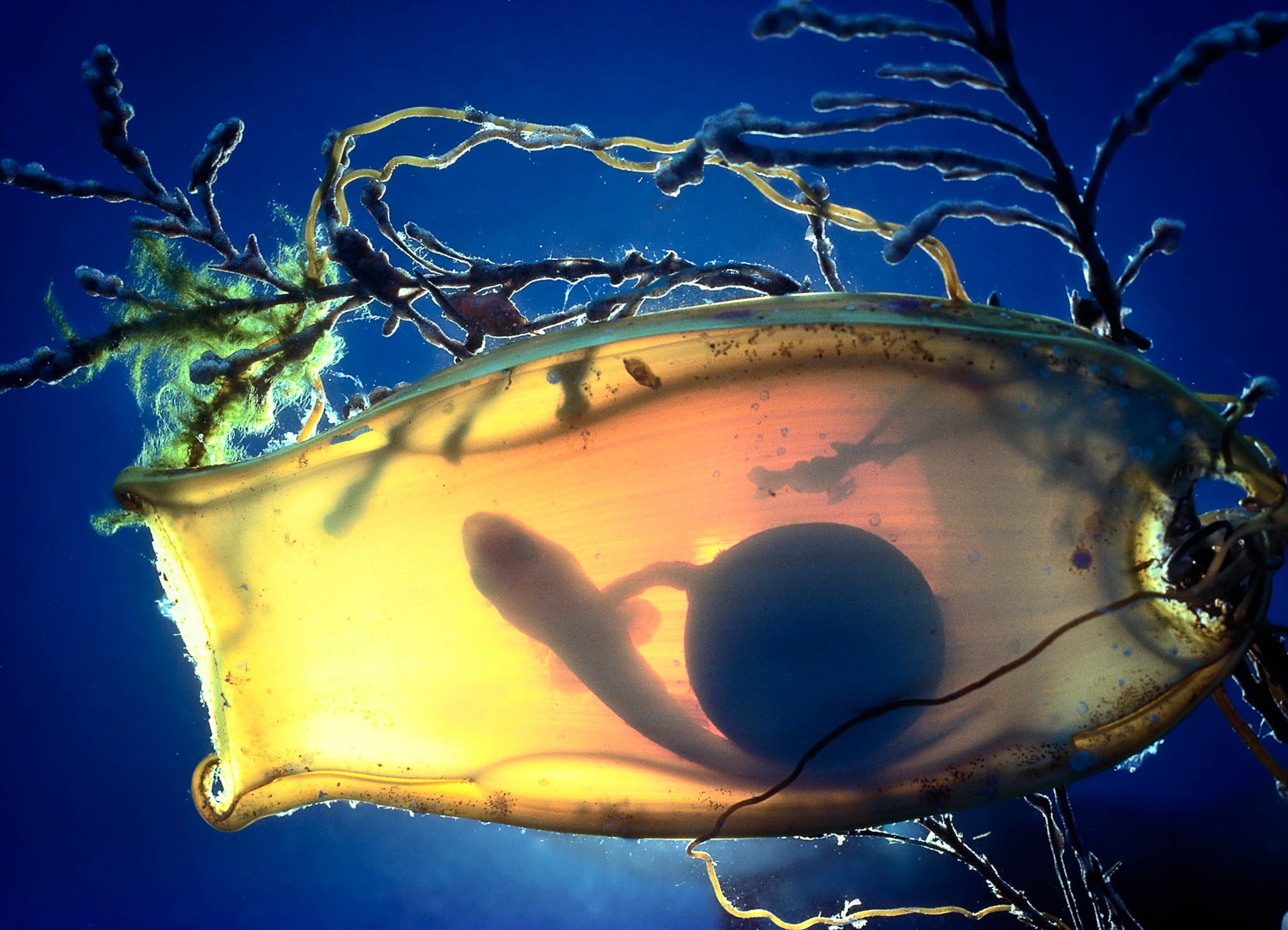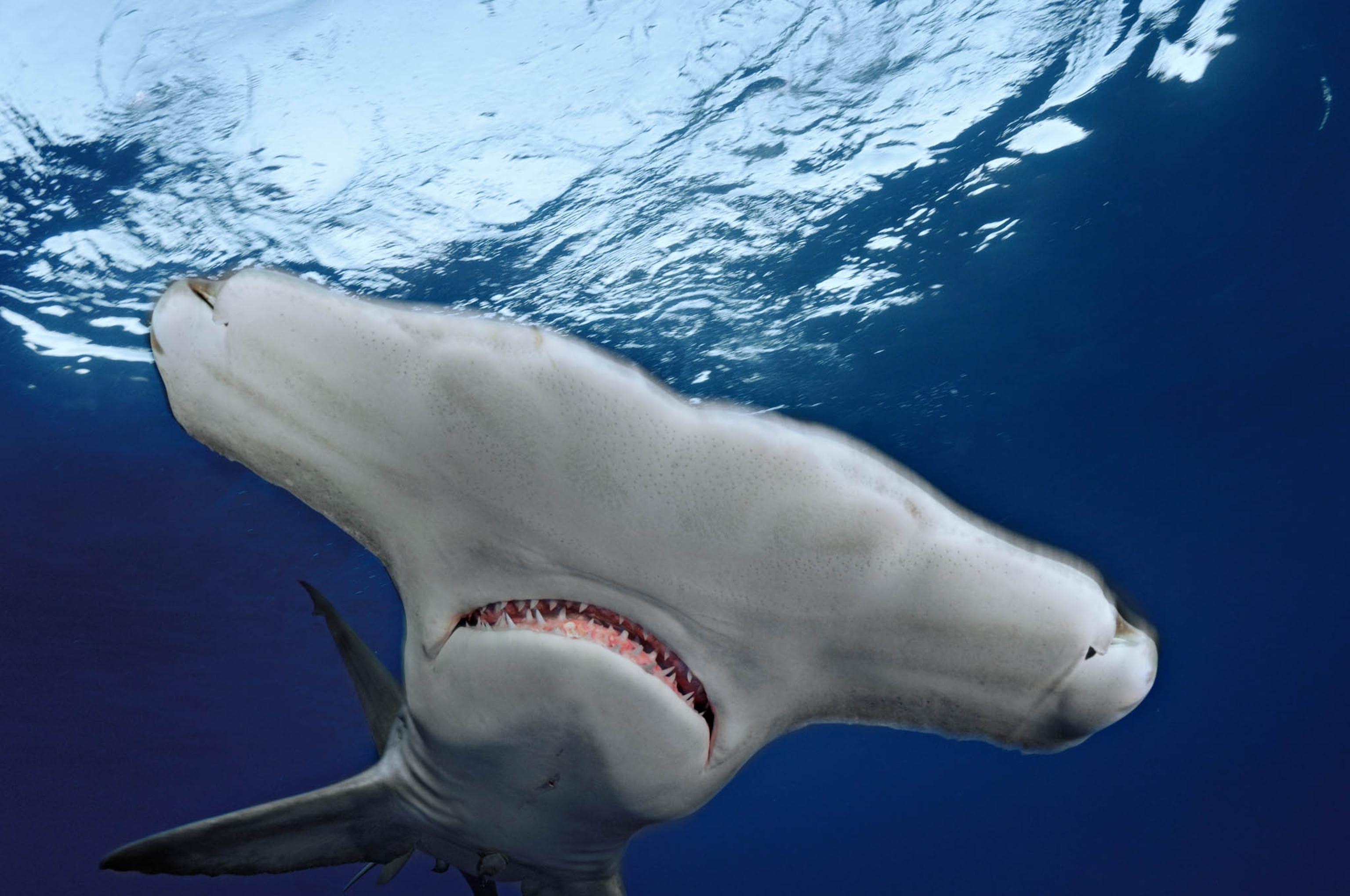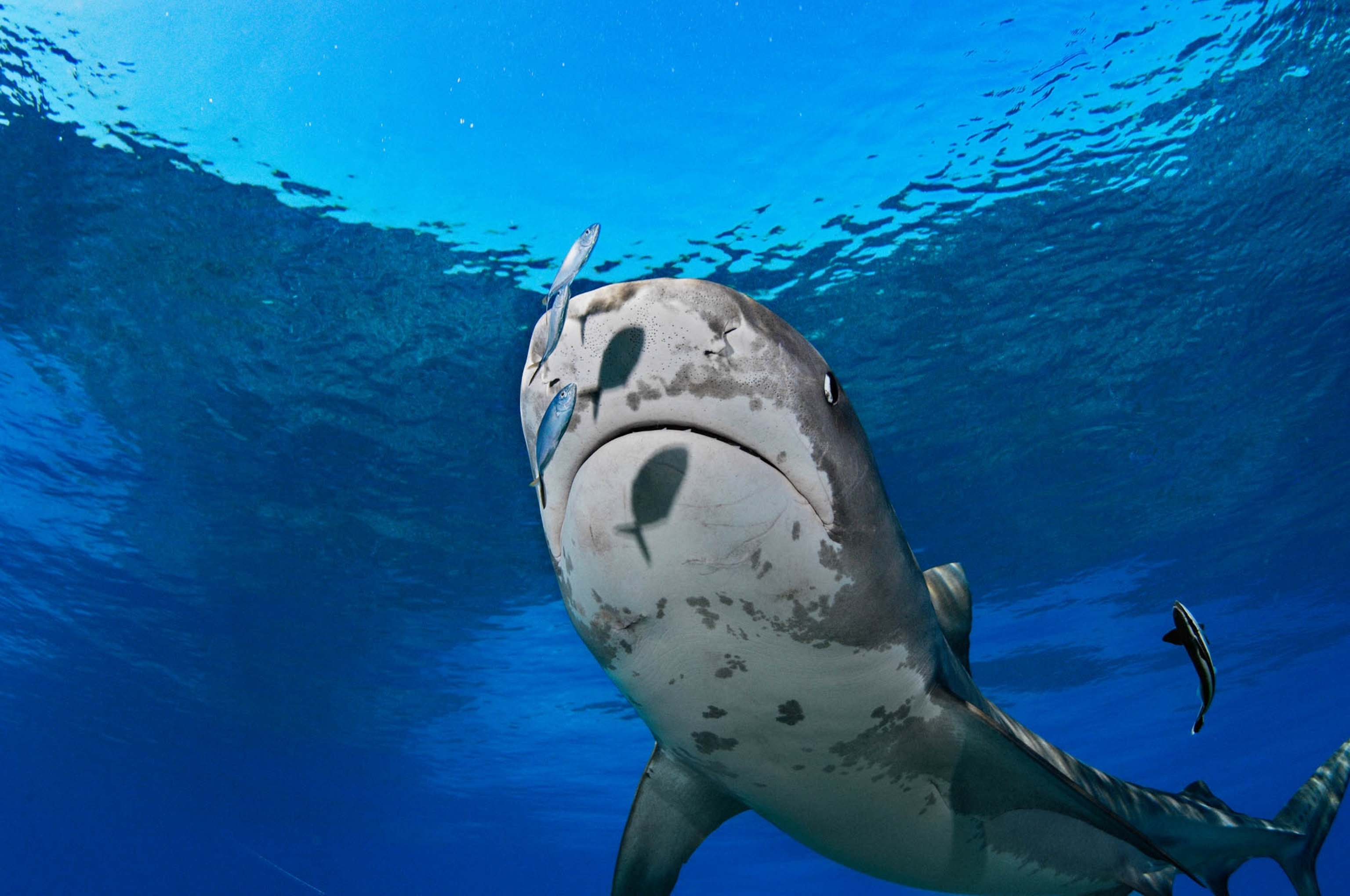
Dramatic Cage Dive Photos Show What Not to Do Around Sharks
A viral photo has stirred debate over the ethics of cage diving.
Photos of tourist divers touching a fearsome great white shark have taken the Internet by storm this week, inspiring shares, likes, and questions over how to interact with wild animals.
Moscow-based diver Dmitry Vasyanovich, 47, posted the pictures to Facebook, saying he took them on a recent dive to Guadalupe Island, off the Baja peninsula. It's a popular spot for the controversial practice of cage diving. In the photos, the divers can be seen luring sharks close by dangling chunks of bait, a practice that some conservationists have criticized as interfering with the natural behavior of wild animals.
On its website, dive tour arranger Guadalupe Great White Sharks says: “Mexican park regulations require that you stay within the cages at all times including keeping your arms, hands and cameras inside. Feeding the sharks … is strictly prohibited.”
Violating those rules can put divers at serious risk of injury or even death. It can also put the sharks at risk, scientists say, by teaching them to associate people with food.
"Sooner or later one of those guys will lose an arm, and then it will become a shark attack," says George Burgess, director of the Florida program for shark research at the Florida Museum of Natural History. "File this under "s" for stupidity."
Many people know not to feed bears, alligators, or other animals on land, but when it comes to the water many people haven't gotten the message, Burgess adds.
See 10 Chilling Shark Pictures
Despite heated debates online, there isn’t much data on the dangers to sharks, and one study of tiger sharks in 2012 found no evidence of harm to sharks that were being routinely fed on tourist dives in the Bahamas. Still, Greg Stone, a marine biologist and executive vice president of Conservation International, says he has seen sharks get aggressive after having been fed.
"Whether they get the bait or not, if you are providing them with scent or bait you are altering their natural system," says Stone.
Some people argue that the educational benefits of having people experience sharks up close outweighs any impacts on their behavior.
"I would argue that the picture [above] is not a good educational story," says Burgess.
Former National Geographic Digital Nomad Andrew Evans declined to go shark cage diving when he was in South Africa, calling the practice inauthentic, unsustainable, unhelpful to conservation, and perpetuating myths about sharks as savage killers.
“In my opinion, shark cage diving makes a mockery of real conservation efforts to preserve an animal that is in rapid decline (so far, we have lost 90% of the world’s shark population since 1950),” wrote Evans. (Learn more about shark conservation.)
This story was updated at 5:15 pm ET to include comments from Burgess.









